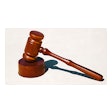Copyright 2017 Knoxville News-Sentinel Co.
All Rights Reserved
Knoxville News-Sentinel (Tennessee)
They should give it back. The NCAA, I mean. They should give the banner back.
They gave back Joe Paterno's wins, didn't they?
They let Duke keep its tainted Final Fours.
So the NCAA should let Memphis hang the Final Four banner it won in 2008, but which is now stashed in a locked closet in the athletic office building, even though the NCAA couldn't prove Memphis did anything wrong.
Seriously. The NCAA proved nothing, nada, zippo.
But down came the banner because the NCAA wanted it down. Because if you're at a school like Memphis, with a coach like John Calipari, sometimes that's enough.
I bring all this up as Calipari tries to win yet another Final Four banner by leading his Kentucky Wildcats past the North Carolina Tar Heels at FedExForum on Sunday.
Earlier in the week, when I asked Calipari if he had given any thought to whether the Memphis banner should still be hanging, he said, "I haven't, but I would say there's nothing that can take away what the run was about for all of us, including the city."
Which is true, of course, and what every coach and fan says about vacated victories. Nothing can take away the memories of UCLA's vacated Final Four appearance in 1980, or the memories of Memphis's vacated Final Four appearance in 1985, or the memories of of Michigan's Final Four appearances in 1992 and 1993, or the memories of Ohio State's Final Four appearance in 1999.
But there is a critical difference between all those cases and the case against Memphis in 2008. And the difference is that the NCAA never established - and never actually cared to establish - that Memphis did anything wrong.
Indeed, Derrick Rose was cleared to play by the NCAA Clearinghouse. They said he was good to go.
"All these kids go through a review, for academics and then amateurism, it's both," said Calipari, when interviewed for the upcoming 30 for 30 film One and Not Done. "He went through it, and was cleared. And we played him."
So that was that, right?
Except in the fall of Rose's only year at Memphis, allegations began to surface that he may not have taken his SAT. Whereupon the university launched an investigation of Rose - including a personal interview -- and was "unable to substantiate the allegations of academic improprieties."
Simultaneously, the Educational Testing Service - which administers the SAT - launched its own investigation and sent Rose a letter on March 17 and on April 10 of 2008, requesting additional information about the test. On March 17, Memphis was headed to Little Rock to play in the NCAA Tournament. On April 10, Memphis was three days beyond its loss to Kansas in the national championship game.
Rose didn't respond to the inquiries. The Educational Testing Service canceled his scores. On that basis alone, the NCAA stripped Memphis of its Final Four appearance and its wins.
The NCAA expressly ruled that it did not need to determine whether Rose actually took the test. Nor did it matter that Memphis may have done nothing wrong.
"It is not about what they did or didn't do," said one committee member, according to the hearing transcript.
So even thought there was no finding that Rose didn't take the test, even though there was no finding that the university was involved in anything untoward, the banner had to come down.
How?
Through the magic of "strict liability," a legal concept which seems to mean, "You're Memphis and John Calipari, not Duke and Mike Krzyzewski."
To be clear: I don't for a moment think Rose took that SAT. Nor do I think Calipari was oblivious to what went down. Rose was the best player he had ever recruited - the key to his national championship hopes - and Rose had already failed to get a qualifying score three times. It was May 2007. This was Rose's last shot. He decided to take the test in Detroit, home of legendary operator William Wesley, instead of his hometown of Chicago. You think Calipari didn't have a hand in all that?
So you can rationalize the NCAA decision as a sort of rough justice which, in fact, I have done before. But I was wrong. Mere suspicions shouldn't justify NCAA punishments. There has to be proof. And the absence of proof in the Rose case is further demonstration that the NCAA's system of punishment is at best inconsistent, and at worst slanted against certain coaches and schools.
None of this is breaking news, of course. Look at the seemingly perpetual North Carolina case. Or look at the NCAA's historic unwillingness to vacate any actual NCAA basketball championships, as opposed to appearances in the Final Four.
I guess we can call that convenient liability. As opposed to strict liability. Or negotiated liability, which is what Penn State football ultimately got.
The NCAA originally vacated 111 of Joe Paterno's wins in the wake of the Jerry Sandusky scandal. Then it un-vacated them as part of a settlement in 2015. None of the facts of the case had changed, of course. But Paterno went from being the winningest coach in college football, to the second-winningest coach, to the winningest coach again.
So it's possible to revisit decisions. At least, if you're one of the chosen or litigious few. As for Memphis, I certainly never expect it to happen, but the NCAA should give that banner back.
Read More of Today's AB Headlines
Subscribe to Our Daily E-Newsletter
Terms and Conditions Privacy Policy































